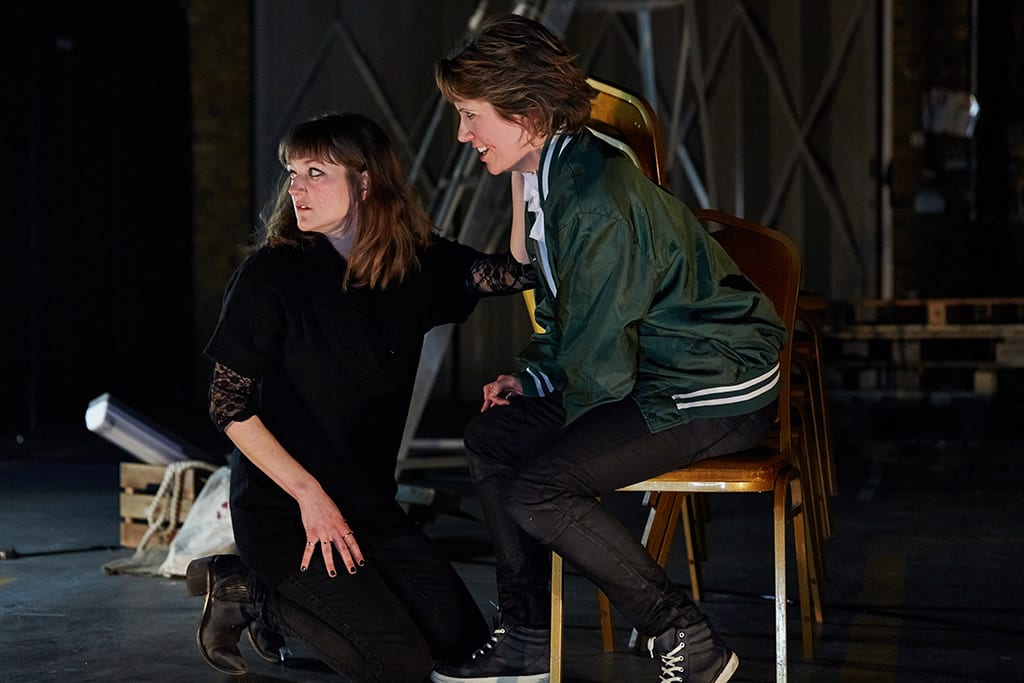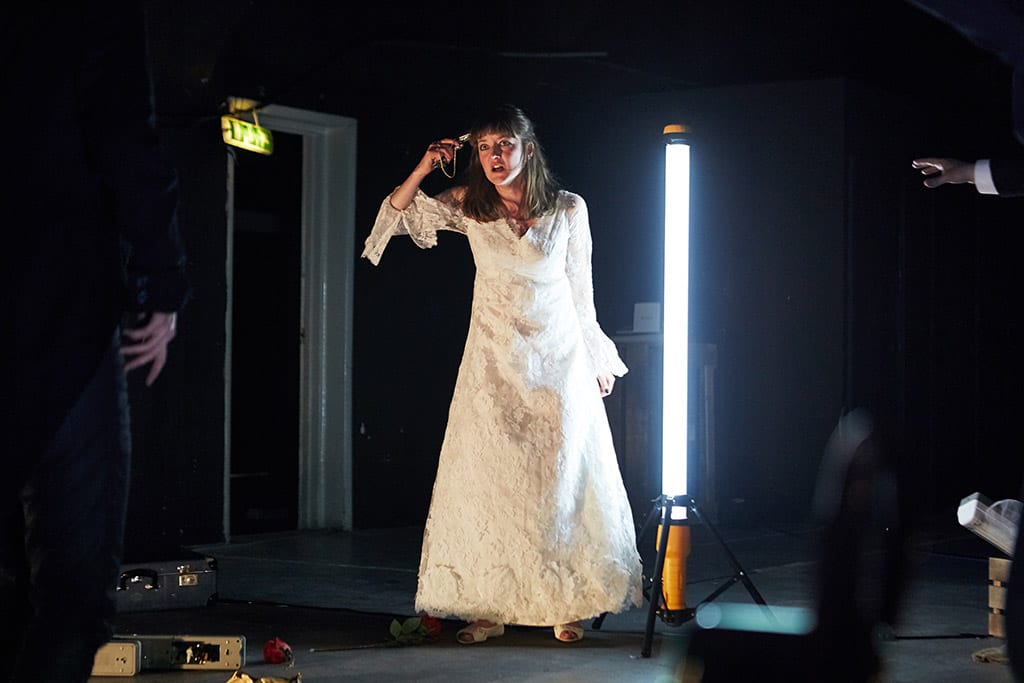Bellini’s version of Romeo and Juliet is not one of his more popular works but Popup Opera makes a compelling case for its virtues. There is plenty of excellent music and the dramatic impact of the opera’s tragic ending is very powerful even in the strange setting – the basement of an upmarket restaurant – where the first performance of this version took place. Given that the rest of the spring tour will take place in a wide range of other venues I will not dwell on the shortcomings of the Carousel basement. All I will say is that the cast did a wonderful job of bringing the music to life despite the concrete walls, the noisy air conditioning, and the poor sightlines. On the positive side the surtitles projected onto all four walls of the room were very clear and the translation used was modern and pithy.
The opera was first performed in 1830, just after the era of the castrati came to an end. Nevertheless, the role of Romeo was written for a mezzo-soprano not a tenor as might have been the case twenty years later. Popup Opera is very fortunate to have the splendid Flora McIntosh singing the role – anyone who has seen her sing a sexy Carmen will be shocked at how well she captures the swagger of adolescent gangster yob Romeo – this is not Shakespeare! She pitches her voice perfectly for the small space – delivering dramatic power when it’s needed but generating a sweetness of tone when it needs to be soft. And Giulietta, sung by Alice Privett, is just as impressive, capturing the demands of Bellini’s long ornamented lines with real style. The three male roles – Capellio the Mafia don, Lorenzo his lieutenant, and Tebaldo, the young hothead – are not as prominent musically but all get well defined characterisation and splendid singing from Andrew Tipple, Matthew Palmer and Cliff Zamet-Stevens.
In this version the Montagues and Capulets are rival mafia clans and it is set in modern times. The staging is necessarily simple – overturned chairs, boxes, and light-bars. Mostly the music and the performances carry us through the development of the drama though there are some difficult moments – particularly some inexplicable entrances from unexpected corners of the performing space and a Giulietta who remains resolutely upright even when we are asked to believe that all around her think her dead. And of course, despite the excellence of pianist Berrak Dyer, we miss the beauty of Bellini’s full orchestration.
Some of the later performances in Popup Opera’s spring tour are to take place in rather more beautiful settings. If they are coming to a venue near you, don’t miss this evening of great singing and powerful drama.



